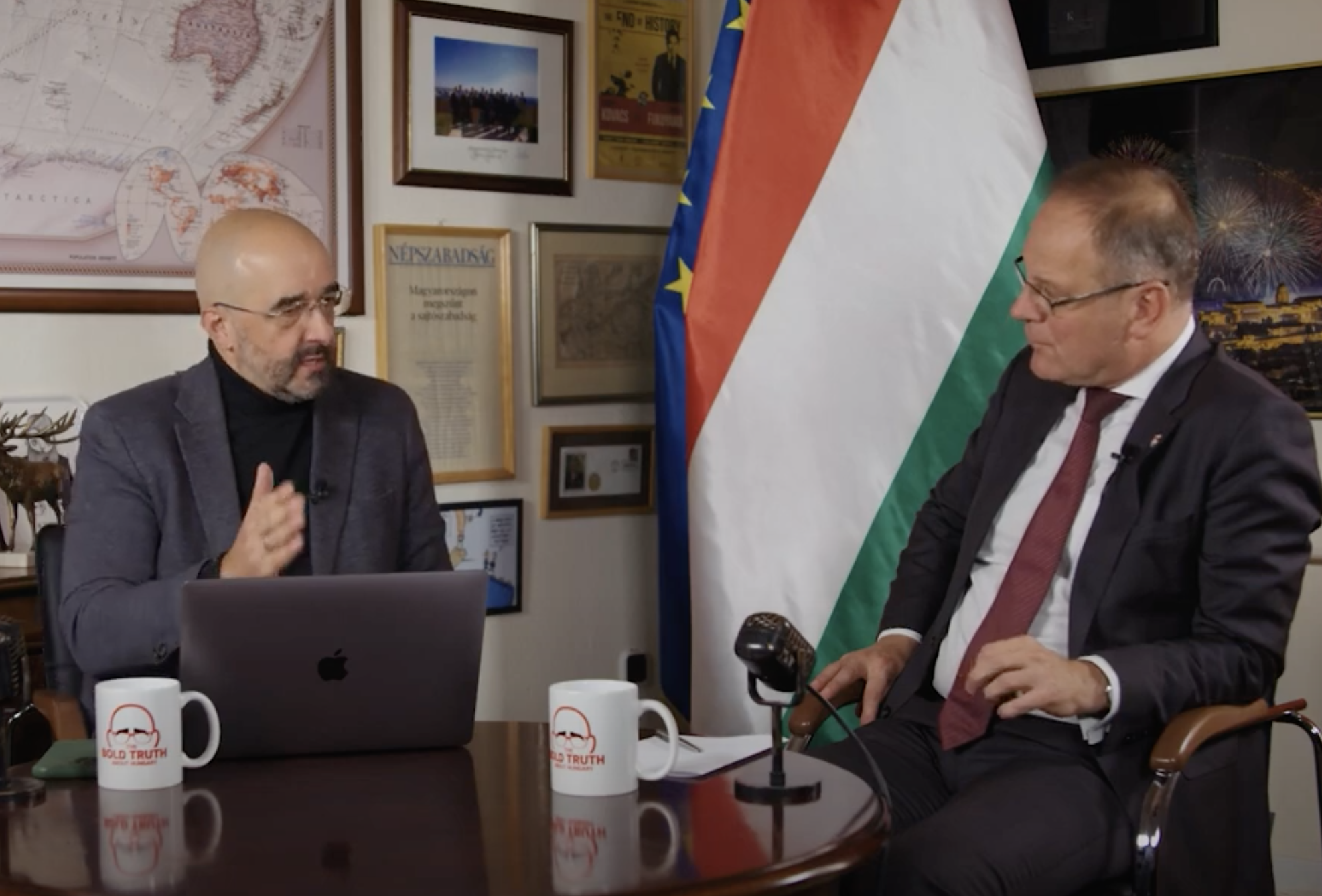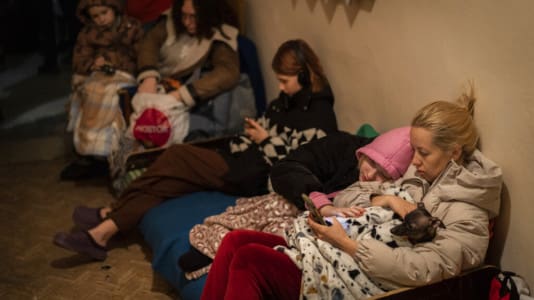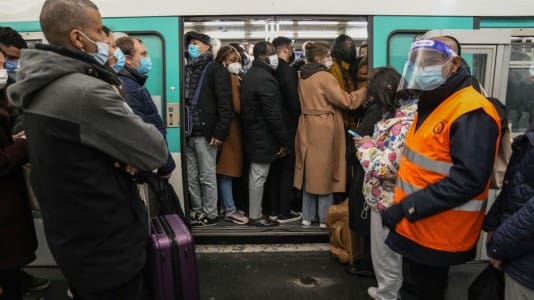Hungary’s former EU Commissioner Tibor Navracsics didn’t pull any punches in the first episode of a new podcast by Hungary’s state secretary for international communication, Zoltán Kovács.
The new series, entitled “The Bold Truth About Hungary,” seeks to bypass the often misleading liberal mainstream media and publicize the work the Hungarian government is doing under the mandate it was once again handed by the Hungarian people back in April.
Ahead of his interview with Navracsics, Kovács told listeners what to expect from his new initiative:
“We intend to do something new, but at the same time continue with what we’ve been doing for the past 12 years. And that is telling you, the audience, the Hungarian stance, what the Hungarian interest is telling us to do because of the mandate we have received from the Hungarian people. And we follow a very simple rule we’ve been trying to call attention to for the past 12 years when it was about institutional conversations, political meetings, discussions or political announcements. We always, we always say what we mean and we always mean what we say.”
His first guest, Navracsics, served as an EU commissioner for five years and has recently been appointed by Hungarian Prime Minister Viktor Orbán as minister for regional development within his domestic government, a post Kovács described as “probably one of the biggest challenges in government” due to the ongoing disputes with Brussels over the release of key EU funding.
Navracsics outlined his qualifications for the role, explaining that he has “already sat on both sides of the barricade,” namely domestic government and within the Brussels framework. As such, he claimed to “know and probably understand the member states’ attitudes and view, but also the Commission’s view and the Commission’s behavior towards the member states.”
“In this case, I think the best use of my experience and my knowledge and all of my skills is to get the EU funds, which proves at the moment a pretty difficult exercise,” he added.
Kovács explained to listeners that the money currently being withheld by the European Commission from Hungary is not a handout, but “compensations for our [EU] membership” and for opening up its internal market to Europe and putting certain areas and industries at a “disadvantaged position.”
“That’s not a gift,” Navracsics concurred, revealing that the Hungarian government is seeking funding from Brussels “mainly on two grounds.” The first is cohesion money, and the second is through the EU’s Recovery and Resilience Fund (RRF) set up following the economic disruption caused by the coronavirus pandemic.
Despite Brussels’ reluctance to release funding to Hungary’s conservative administration, the former EU Commissioner Navracsics claimed that “actually, Hungary is one of the most trustworthy users of EU funds,” with the country’s performance in distributing the funds appropriate, as it was sent to targets intended to stimulate regional development at above 80 percent.
“Of course, we are very vigilant to keep this good performance even when it’s attacked for political reasons or from other authorities or institutions. And that is why we want to develop our institutions and we want to make it more transparent, less exposed to political attacks, and to improve the performance, to reach an even higher absorption capacity. That’s why we need an early adoption of both the operational programs and our recovery, national recovery plan as well.”
Tibor NavracsicsGiven the country’s track record in appropriately disbursing EU funding to areas in need of development, and possessing the necessary statistics to corroborate the government’s good work, Kovács asked why it is that the Hungarian government and the European Commission are seemingly at open war and on separate sides of “the barricade,” a feud Navracsics believes to be long-running and which started some time before Orbán’s conservative administration came to power in 2010.
“Some of the viewers who are interested in Hungary’s affairs and Hungary’s links to the EU can remember that in the parliamentary period of 2006-2010, there were a lot of problems with the then so-called socialist-liberal coalition and the so-called convergence report and convergence plan. Because they simply falsified data at that time,” Navracsics said. He elaborated to explain that the economic situation at the time in Hungary was “a little bit similar” to Greece, and in 2010 when Fidesz and its coalition partners, the Christian Democrats, won a two-thirds majority in the Hungarian elections, the political context in Hungary and its relationship with the European Commission changed.
Navracsics explained that he witnessed the development of negotiations between Orbán’s first administration and the European Commission between 2010 and 2014 when judiciary reform and legislative amendments to media were first mooted. He suggested that despite the good faith in which Hungary operated at this time to appease any concerns in Brussels of its domestic legislative framework, there remains a “political distrust” by Eurocrats over the Fidesz governance, and as such, Hungarian negotiators are often having to negotiate “on a political context and not on a legal basis, not on the legal solutions, but how to fix the political context.”
Kovács asked the extent to which Navracsics stands by the claim of many within the Hungarian government that it is being subjected to a “witch hunt” and “blackmail” by a liberal European Union executive dissatisfied with a popular, successful conservative administration running a member state.
In a diplomatic response, Navracsics took the example of the independence of the judiciary to highlight that other member states have “much poorer results in independence, in efficiency, in other parts of the judicial cooperation, or even itself, the judiciary, even in institutional terms” than Hungary. He further highlighted the “serious situation” that arises when EU negotiators “reopen closed and concluded boxes” on issues, such as the judiciary topic that was first renegotiated between 2010 and 2014 and had “reached a good solution.”
Kovács highlighted the argument put forward by the Hungarian negotiators from the summer of 2021, primarily that the European Commission had taken issue with Hungarian domestic policy but without detailing “any specifics and particular issues on which they want a settlement.”
“It turned out that beyond the concerns and the messaging, there were no particular issues put on paper and put into boxes as you suggested actually, opening up those boxes that should be sorted out.”
Despite this, Hungarian negotiators have bent over backwards to appease European concerns and offer greater transparency and accountability regarding its domestic governance. Navracsics explained that Hungary has “been negotiating basically on three separate platforms for six months now.”
“These platforms, the rule of law conditionality procedure, the cohesion money and the RRF money are allegedly separated, but of course we could see that they are intertwined. I mean there is a very strong link between the three lines of negotiations. So what we’ve done in one platform can have an effect on the other two platforms and can accelerate or even slow down the negotiations on the other platforms as well. I think the core of the problem is the lack of trust. I would say a mutual lack of trust because the Hungarian government doesn’t trust the European Commission’s benevolence. And also the European Commission doesn’t trust the Hungarian government’s motivations. So what we are doing now is a trust-building exercise basically.”
Tibor NavracsicsKovács questioned whether it was possible to rebuild trust between the two parties and continue to negotiate in such a fluid manner, attempting to hit what he refers to as a “moving target.” He explained that Hungary has now introduced five bills to satisfy the European Commission’s concerns and asked Navracsics whether he believes the European Union will ever have an “acceptive attitude” and accept that when a box is closed, the box is closed and not reopened, as has been the case previously.
“I can feel a growing trust because we delivered by the proper time, by the end of September,” replied Navracsics, referring to the meeting by Hungary of a deadline for the first draft laws for legislative reform as ordered by Brussels.
“We made it. Moreover, we adopted 17 pieces of legislation last week, so we overperformed our deadlines,” he added.
“I hope that this trust will be growing in the coming months. Of course in politics, accidents always can happen. So we don’t know if we should reopen again new already closed boxes. But I hope, I’m pretty optimistic that now we can do our best and we can deliver that,” Navracsics revealed to listeners.
In his final question to the former EU commissioner, Kovács quizzed him on the broader political landscape in Europe currently, asking how the ongoing conflict in Ukraine, the skyrocketing inflation in Europe, and the energy crisis affect the negotiations with the European Commission.
Navracsics said he believed the “historical context and the international environment is a very strong argument in our favor just because I think if cohesion funds and cohesion money and recovery money can be important after a crisis, it can be even more important during an international crisis.
“The European Union must not be divided, not in political terms, neither in political terms nor in ideological terms, nor in regional terms as well. So, it’s in the best interest of the European Union to help all the member states and help them tackle the problems even more if a country is on the front line, because we are basically very, very close to the front line, just like other Central European countries. So, we don’t want more than we have a right to, but we want all the help, support, and resources which we have a right to, and that’s why we need that,” he concluded.





